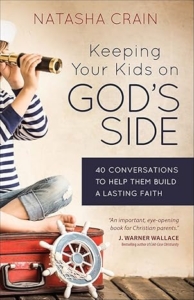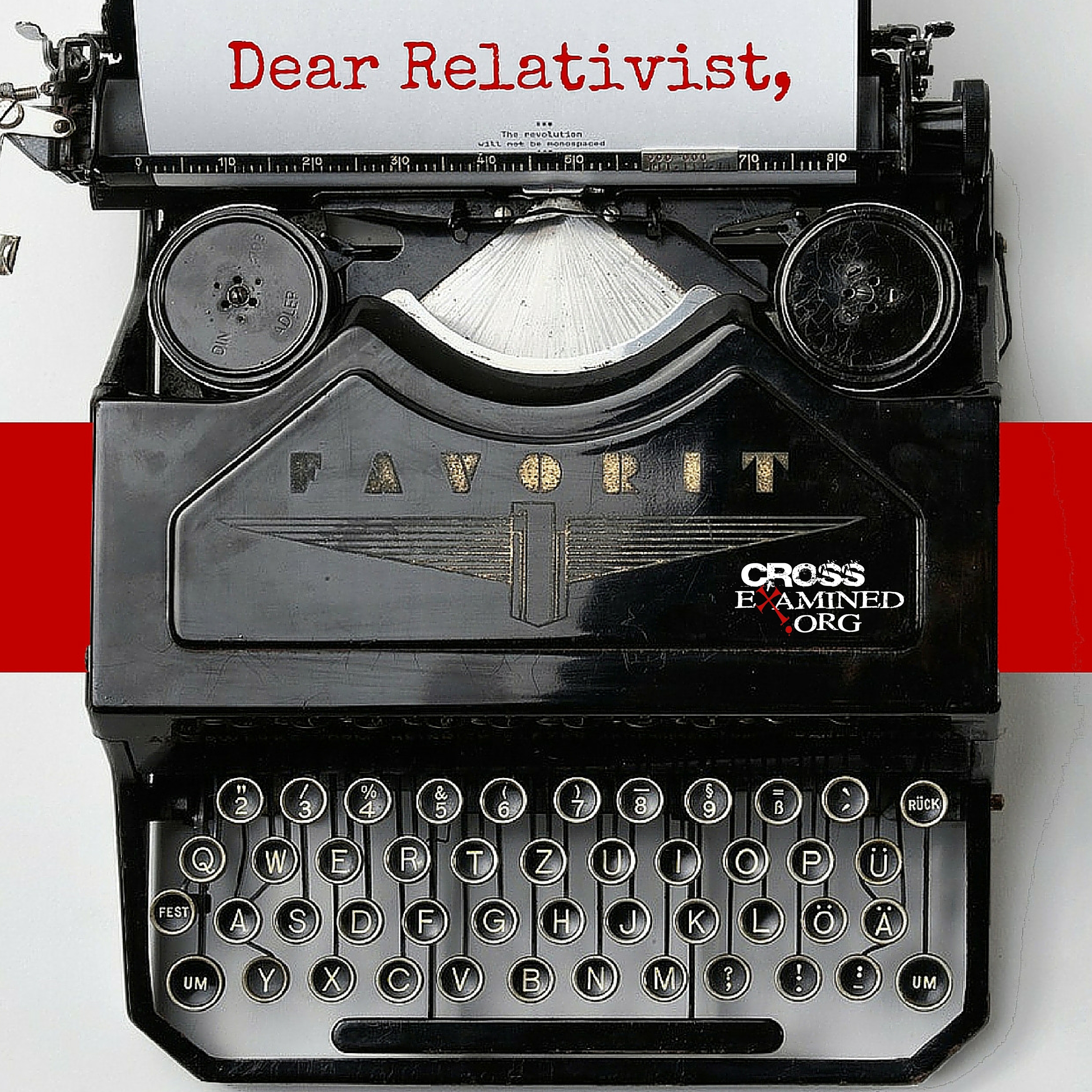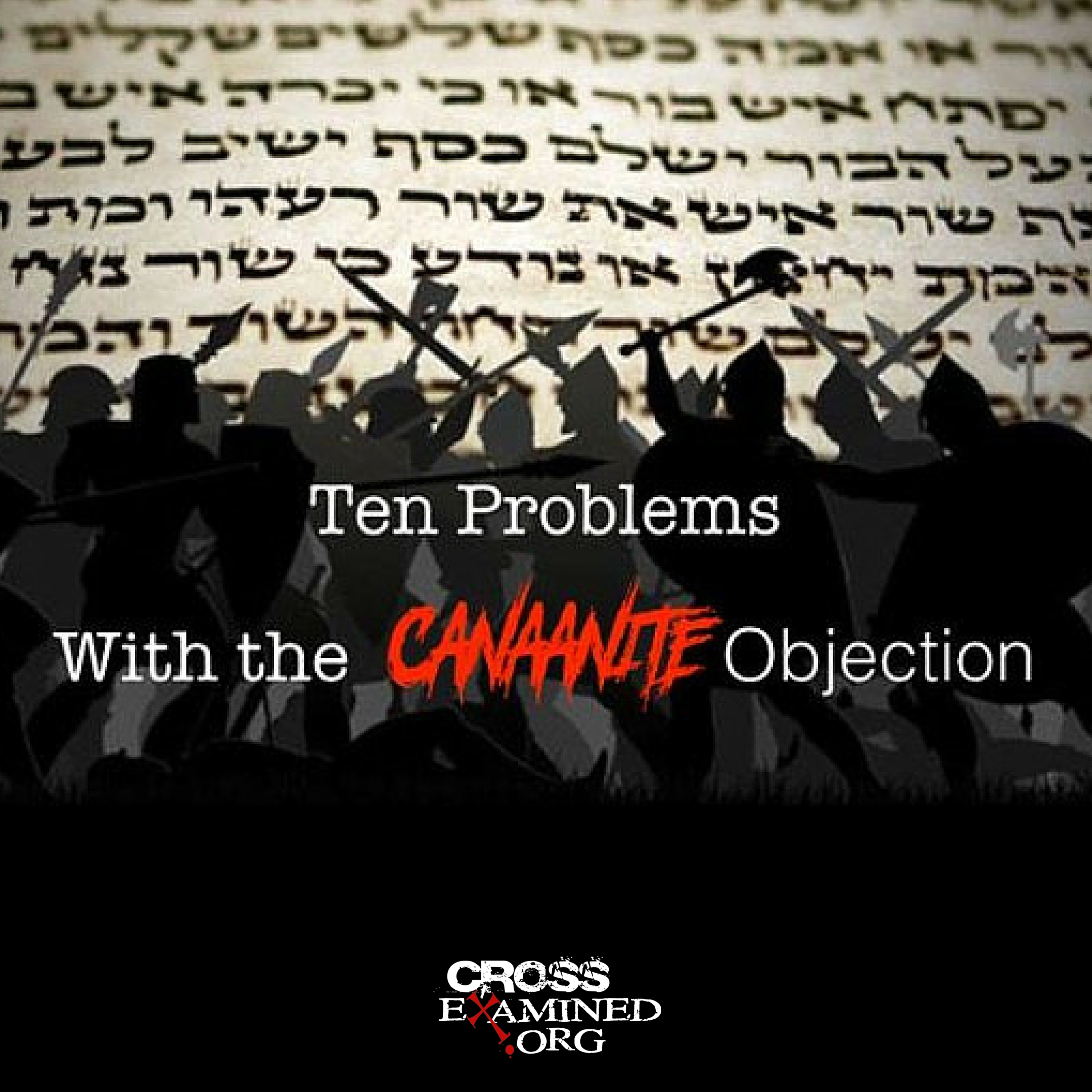By Shannon Byrd
Are the conquest narratives in the Old Testament any different from what we are currently viewing with ISIS throughout the Middle East and Europe? Questions like this often come up in discussing the existence of objective moral values and duties and their proper grounding. When God is posited as the grounding of morality, the objector usually brings up some obscure OT text that he or she thinks will demonstrate that God has a warped sense of morality and it is usually in this context that the conquest narratives are brought up.
False Distinction
One reason this problem has persisted is that many Christians aren’t comfortable with God judging people; they draw a distinction in their minds between the God of the OT and the non-violent, peaceful Jesus of the NT. However, this distinction is an artificial one, Jesus regularly denounced others and threatened judgment. He took a whip and drove moneychangers out of the temple (Jn 2:15). Never mind what he said in Matthew 18, “. . . whoever causes one of these little ones who believe in Me to stumble, it would be better for him to have a heavy millstone hung around his neck, and to be drowned in the depth of the sea.” So this distinction between God in the OT and Christ in the NT falls flat on death ears. Christ didn’t downplay the texts depicting judgment and for modern Christians doing so actually skews the image of Christ.
The Bible is Literally True
We’ve all hear this before, “Either the bible is literally true, or it’s literally false.” I remember agreeing with statements like this as a kid growing up in church; it sounded pious, but I didn’t know any better at the time. Many critics of Christianity as well as pastors have little to no understanding of biblical hermeneutics. Just because everything in Scripture is true, does not mean it is literally true. What am I saying? If we take everything in Scripture to be literally true, then tree’s sing,(1 Chr 16:33; Ps 96:12), Christ is a door (Jn 10:7), YahWeh flies in the sky on Cherubs (2 Sam 22:11), and Elihu’s heart jumped out of his chest (Job 37:1). Clearly everyone understands these texts to be figures of speech and aren’t to be taken literally; they were consciously exaggerated by the author for the sake of effect. Taken literally, these passages sound like a Harry Potter novel.
The statement “either the bible is literally all true, or it’s literally all false,” is also a logical fallacy. Just because some passages of Scripture are literally true, it doesn’t follow that all passages are literally true. So, not only is thinking in this manner hermeneutically flawed, it’s logically flawed as well. There we have it, two solid reasons to reject a rigid literal only interpretation.
Additionally, there are good textual reasons not to take the conquest accounts literal. K Lawson Younger Jr. notes that the accounts in Joshua 9-12 are figurative and utilize what he calls a “transmission code,” which is a commonly stylized and frequently hyperbolic method of recording history.[1]
It is clear that from within the book of Joshua itself, the text indicates that it isn’t to be taken literally. Consider the text of Joshua 10:20, ”It came about when Joshua and the sons of Israel had finished slaying them with a very great slaughter, until they weredestroyed, and the survivors who remained of them had entered the fortified cities.” If they were slaughtered and destroyed then there shouldn’t have been any survivors.
One of the best examples of why we should regard the text as hyperbolic occurs in Joshua 8.
v. 16, And all the people who were in the city were called together to pursue them, and they pursued Joshua and were drawn away from the city.
v. 17, So not a man was left in Ai or Bethel who had not gone out after Israel, and they left the city unguarded and pursued Israel.
v. 22, The others came out from the city to encounter them, so that they were trapped in the midst of Israel, some on this side and some on that side: and they slew them until no one was left of those who survived or escaped.
v. 24, Now when Israel had finished killing all the inhabitants of Ai in the field in the wilderness where they pursued them, and all of them were fallen by the edge of the sword until they were destroyed, then all Israel returned to Ai and struck it with the edge of the sword.
Taken literally, this block of scripture would be manifestly nonsensical. If there were no survivors or fugitives remaining in Ai, who did the Israelites pursue?
Joshua also exaggerates numbers:
v. 25, all who fell that day, both men and women, were 12,000—all the people of Ai.
Yet earlier the spies Joshua sent in prior to the battle for Ai make the remark:
Do not let all the people go up; only about two or three thousand men need to go up to Ai; do not make all the people toil up there, for they are few (Josh 7:3).
Clearly these texts aren’t meant to be literal, something else is going on and the hagiographic hyperbolic interpretation fits best and takes the passages that appear at face value to be nonsensical and interprets them within a flexible framework, just as other Near Eastern texts were understood at the time. A great deal of the narratives that contain troop numbers and or casualties mentioned are exaggerated for added effect. This was common during that period.
The Canaanites Were Innocent
Often times it’s assumed by many that the Canaanites were the victims of a terrible crime against humanity. “They were attacked and massacred for no reason at all,” I’ve heard some say—but is this true? Scripture presents a different story; the Canaanites were called wicked (Deut 9:5). What were they guilty of? Moses listed all the occultic practices of the Canaanites; they did “detestable things,” “practiced witchcraft,” and sacrificed their children to Baal via fire. Moreover, the Canaanites practiced bestiality—disgusting—this is why it is mentioned in Leviticus 18; God did not want the Israelites practicing this as the Gentile nations around them had done. “Not good enough evidence,” the skeptic might say, “the authors were biased and looking for a reason to fight the Canaanites.” To be sure, no one is without bias, but did the author accurately report what the Canaanites were doing? Extra-biblical evidence corroborates what the OT reports of them. In the Canaanite epic poem The Baal Cycle, we learn: “Mightiest Baal hears; He makes love with a heifer in the outback, A cow in the field of Death’s Realm . . . He lies with her seventy times seven, Mounts eighty times eight; [She conceives and bears a boy].” I think the evidence speaks for itself; Canaanite sexual practices are well documented.
“Utterly Destroy”
In Joshua 6-12, it is reported that Joshua “utterly destroyed” multiple cities and peoples. It is unlikely that whoever finalized the form of Joshua intended it to convey that the Canaanites were exterminated at God’s command. Joshua was intended as a literary component consisting of Deuteronomy, Judges, 1 and 2 Samuel, and 1 and 2 Kings. It is best to interpret it as preceded by Deuteronomy and succeeded by Judges. Given Judges is literarily linked to Joshua, the book presents a different story; it starts with the presumption that the Canaanites are still present in the land. So, Joshua on the surface seems to show that the Canaanites had been “utterly destroyed” yet Judges assumes they are not. In Joshua specific locations are mentioned where Joshua exterminated everyone (Hebron 10:36; Debir 10:38; Hillcountry Negev and western foothills 10:40). Yet, in the first chapter of Judges, it’s affirmed they couldn’t drive the Canaanites out from these very cities (Debir v.11; Hebron v.10; western foothills v. 9). Moreover, Joshua reports that he took the “whole land,” (Josh 11:23) whereas God makes a statement in Judges that presupposes Joshua did not take the whole land (2:21-23).
This tension can even be seen within Joshua itself, “It came about when Joshua and the sons of Israel had finished slaying them with a very great slaughter, until they were destroyed, and the survivors who remained of them had entered the fortified cities,” So, Joshua destroyed them yet they had survivors? What is going on? It seems to me, Joshua occurs in a literary genre that allows for the language of “utterly destroy” to be immediately followed up by a narrative stating the Canaanites were not “utterly destroyed.” So, put simply, Joshua appears to be highly stylized hyperbole whereas Judges appears to be more like down to earth history. This means Joshua is used to teach theological points rather than give a detailed account of history as it happened. Additionally, this sort of hyperbole was very common in Near Eastern conquest accounts and wasn’t understood as literal.
Some Innocents Were Killed
Given that the interpretation of Joshua presented here, the critic might still argue that some Canaanites were still killed including innocent children. I fully admit that this is possible. Is this a defendable position? My view is if we can coherently defend that if human beings on exceptionally rare occasions can kill innocents for some greater purpose or some greater good, then we have an even better reason for God issuing such a command.
First, humans kill innocents all the time for the sake of a greater good. Consider this scenario: a plane headed for Washington D.C. is reportedly hijacked. A terrorist has control of the aircraft and is headed for the White House, where thousands are gathered. The Air Force intercepts the plane and the fighter pilot is faced with a choice; he can either let the plane hit its intended target, killing thousands and potentially the leaders of the executive branch of government to include the president, or he can shoot the aircraft down and kill everyone on board to include the terrorists, men, women, and children. Is it coherent for this pilot in this extremely rare circumstance to kill innocent human beings? Most would say yes, he would be rational in making such a decision.
This pilot is armed with counterfactual knowledge and knows that if he does not shoot the plane down, more lives will be lost. Like the pilot, God knows counterfactuals as well. He knows not only what will occur, but also what would occur given different circumstances, and he knows this infallibly, whereas humans do not. So, is it coherent that God could command the killing of innocent human beings? My answer is yes. God may know that permitting the killing of some innocent Canaanites might have prevented future and greater loss of life or even greater apostasy by Israel leading to more spiritual death. The point is, if we as humans can rationally justify killing innocents in rare circumstances, and do so with hypothetical knowledge, then we have no grounds to criticize God, who does so, and is omniscient.
* Please read this related article from my colleague, Tim Stratton, shining additional light on the subject of the Canaanite Objection.
[1] K. Lawson Younger Jr., Ancient Conquest Accounts: A Study in Ancient Near Eastern and Biblical History Writing (Sheffield: Sheffield Academic Press, 1990).












